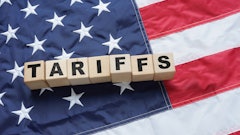Demand for electricity in the United States is rising at a rate of 1 to 2 percent annually, which presents utility companies with a clear challenge: how to increase profitability in such a slow-growing industry. But for Craig Adams, senior vice president and chief supply officer (CSO) with Chicago-based power company Exelon Corp., the answer to this challenge is equally clear: "Based on growth in electric demand now," Adams says, "we really need to focus on getting cost out of the business."
A New Approach to Supply Chain
Exelon, the result of the October 2000 merger of Philadelphia-based PECO Energy and Chicago's Unicom Corp., is one of the top U.S. utilities, with more than $15 billion in annual revenue and a ranking as No. 126 on the 2004 Fortune 500 list. The company, which serves approximately 5.1 million electric customers in Illinois and Pennsylvania and 460,000 gas customers in the Philadelphia area, is comprised of two divisions — energy generation (including nuclear, fossil and hydro) and energy delivery (through ComEd in Northern Illinois and PECO Energy in and around Philadelphia). In all, Exelon has about 18,000 employees, and it has an annual spend of more than $2 billion.
Following the merger, the unified Exelon maintained a largely decentralized supply chain, with the company's different business units preserving a substantial degree of autonomy. This is not surprising given Exelon's industry, which, over the past 100-plus years, has built out capacity incrementally and without a great deal of standardization over time. In Exelon's nuclear business unit, for example, the company operates 10 different nuclear power stations across its geographic regions, and each station traditionally had its own local supply organization, staffed by 30 or so employees and reporting to the vice president at each plant. The company's other business units also had independent supply chains to one degree or another.
All of which, says Bridget Reidy, senior vice president for customer and marketing services with the Exelon Energy Delivery business, was not necessarily a bad thing. Reidy, who formerly was Exelon's first chief supply officer before stepping into her new position this past July, says that each of the company's different supply chains was operating quite well on its own. However, by 2002, after the dust from the PECO Energy-Unicom merger had settled, Exelon's senior supply chain executives began to consider changing their approach to supply management. "A lot of things were working very well within the supply chains in each of the different business units," Reidy says. "But we looked at it from the perspective of each individual business unit, and we didn't have an Exelon-wide perspective. We thought we could achieve a lot of benefit if we looked at our supply chain slightly differently."
Aggressive Timeline, Ambitious Goals
The company brought its supply chain leads together in 2002 to discuss options for transforming Exelon's approach to supply management, and ultimately the group came up with a plan for consolidating all of the company's supply chains within Exelon's Business Services Company (BSC), which also includes such functions as information technology (IT), human resources, finance and legal. The plan also called for revisiting all of the company's spend categories from an enterprise-wide perspective and re-sourcing categories using a total cost of ownership (TCO) approach; standardizing supply chain practices and processes throughout the company; and maintaining or improving service levels in the supply chain. The three-year consolidation plan provided for an aggressive timeline, allowing just four months for the new supply organization to come together, unify the company's supply staff in a new reporting structure and begin acting as a single, enterprise-wide supply chain. The bottom-line goals for what became known as the Supply Chain Transformation Initiative (SCTI) were equally ambitious: $200 million in savings over the three-year life of the project, with $120 million coming in the first year.
Winning senior executive sponsorship for the project was Job One for the supply chain leadership. Oliver D. Kingsley, Exelon's president and chief operating officer at the time, was skeptical of the initiative at first. When Kingsley had come to Exelon, he had assumed oversight of the supply chain that supported the company's nuclear division, while the proposed consolidation would place that division's supply chain under BSC. Yet ultimately, Reidy says, the business case for bringing all of the company's supply chains together under one roof proved sufficiently compelling for Kingsley that he signed onto the project. "The initial challenge had been given to all the supply chains to work together to achieve a certain level of benefit, and we had enough evidence that if we structured [the supply chain] differently, looked at our spend differently and operated in a more standard way, that we could surpass that [level of benefit] many times over, and that made a believer out of [Kingsley]," Reidy says.
Reidy also pushed strongly within the company to establish a chief supply officer to oversee the unified supply chain organization. First, the CSO would have ownership over the company's spend of (at that time) about $2.3 billion. And second, Reidy believed that a CSO could drive standardization of supply chain policies and processes throughout Exelon's various business units. Moreover, the chief supply officer would have a critical role in changing the way that the company's supply chain function acted and was viewed throughout the company. "Changing the organization from 'what do you want and I'll get it for you' to 'let me help you figure out the best way to get what it is I think you need' is a big shift, and the chief supply officer is responsible for that," explains Reidy, who was named as the company's first CSO in 2003 to head up the initiative. (Craig Adams stepped into the CSO role in July, when Reidy was promoted to her current position.)
Ramping up Strategic Sourcing
As Exelon currently is organized, the CSO reports to Pamela B. Strobel, president of Exelon BSC. Executives below the chief supply officer include a Vice President of Supply Strategic Sourcing, Krista Robinson, who joined Exelon in mid-2004, and a Vice President of Supply Operations, David O'Brien. Robinson, in her newly created position, heads up the Strategic Sourcing group, which is charged with sourcing all categories across the company, driving a total cost of ownership approach to the supply chain and managing the company's supplier relationships. O'Brien oversees the Supply Operations group, which provides "tactical support" to Exelon's other business units, including materials handling (logistics and warehousing) and non-strategic purchasing (for example, of low-dollar, high-volume items). In addition, the company's Business Operations and Governance Group, formerly Supply Support, comprises e-business functions, supply projects and diversity initiatives, as well as policies, programs, systems and decision support systems. The newest member of Supply's executive team, Delia Stroud, vice president, Supply Business Operations and Governance, leads these groups. Stroud, who joined Supply in September, previously served as lead counsel for PECO Energy since 2000.
On the strategic sourcing side of the supply chain group, Exelon organized its sourcing specialists around spending portfolios encompassing more than 70 different materials and services, with managers overseeing such categories as fleet, valves, wire and cable, facilities, equipment rental and environmental, among many others. Category managers assumed responsibility for all the operational issues involved in their spend categories, giving them ownership and allowing them to bring consistent processes to the way in which the company delivered those goods and services to its internal customers across business units. The strategic sourcing team also addressed corporate and IT categories of spend, including outplacement services, advertising and marketing, and travel and lodging, as well as such IT categories as PCs/servers, cell phones and telecom. The sourcing specialists employed a seven-step strategic sourcing process that enabled Exelon to look at capturing value from a total cost of ownership perspective. For instance, in travel and lodging, the category manager looked not only at car rental rates but also at the availability of counter-less service (to minimize wait times), minimum surcharges (such as fuel), and free pick-up and drop-off at certain locations.
To assist the category teams in their sourcing efforts, Exelon also developed a database to allow the company to view its spend enterprise-wide, rather than broken down by business unit. Gaining this kind of cross-unit visibility has been one of the toughest technical challenges associated with the transformation initiative, according to Adams, because of the variety of backend systems running in the different business units. For example, he says, the company's 10 nuclear power plant sites were developed or acquired at different times by a combination of Unicom, PECO Energy and AmerGen Energy. "Every one of their supply chain data systems was different, so pulling all that data together and making it ‘apples-to-apples' was a significant challenge," Adams says. Exelon is ameliorating this challenge to some extent by migrating all its units to the PassPort enterprise resource planning (ERP) system from Indus. The functionality within PassPort has helped automate the spend data aggregation process to a certain degree, but Reidy and Adams both say that the supply chain team has had to do a considerable amount of manual work to, for instance, match part numbers from different plants.
The Strategic Sourcing group also has looked to various online tools, such as online reverse auctions and electronic requests for information and requests for proposal (e-RFIs and e-RFPs) to assist in its efforts. In PCs/servers and cell phones, for instance, Exelon conducted e-auction events to facilitate the pricing negotiation process, finding that with well-defined commodity specifications, the online auction process enabled efficient concurrent negotiations with multiple suppliers. In all, Exelon tested more than half-a-dozen different tools, according to Robinson, evaluating the various solutions on the market based on a range of criteria, but with usability figuring high on the list of priority features, given the need to convert the entire organization to a single tool. After running various online events for different categories of spend using each of the e-tools, Exelon settled on solutions offered by Kansas City, Mo.-based Perfect Commerce to drive its strategic sourcing efforts.
For herself, Robinson sees part of her role in the organization as being a catalyst for introducing supply chain practices that go beyond best-in-class for the utility industry, thanks to her background in the consumer electronics world prior to coming to Exelon. Adams agrees: "Krista has spent a significant amount of time in the consumer electronics supply chain business, which is very different from a utilities supply chain experience. That offers us the opportunity to infuse new thinking." Or, as Robinson explains it, only half-jokingly: "Because Exelon is looking to benchmark [itself against] industries beyond utilities, Craig gets the unfortunate benefit of having me say a lot, ‘Why are we doing that? Well, how about this? How about that? Have we considered this?'"
Standardizing and Automating Processes
Elsewhere at Exelon, the Supply Operations group has been focusing on standardizing processes enterprise-wide for its portion of the company's supply chain. David O'Brien, who heads the group, joined PECO a little more than 15 years ago and spent his early career with the company in engineering and project management on the electric transmission and distribution side of the business before getting into the supply side eight years ago. O'Brien is no stranger to organizational change, having been through the 2000 merger with Unicom and having helped manage the consolidation of the supply chain functions at PECO and Unicom. He says that part of his role today has been to focus on achieving staffing efficiencies in the company's supply operations by streamlining processes and eliminating redundancies. To date, O'Brien says that the group has reduced its staffing on the order of 20 percent under the current transformation initiative, on top of roughly 30 percent reductions that resulted from the PECO-Unicom merger.
To achieve these results, the group has focused on standardization, which has meant implementing best practices consistently across Exelon's supply operations, sometimes taking a best-in-class process from one unit in the company and introducing it throughout the organization, and other times applying practices from outside the company. Standardization also has meant working with internal customers and suppliers to reduce the number of stock-keeping units (SKUs) that the company is buying. Cross-functional teams from Exelon, including staff from the supply organization as well as field operations or engineering employees that actually use the products in question, will meet with a team from the supplier organization to look at product specifications and explore standardization opportunities. For example, Exelon once used some 500 different types of wire and cable on the energy delivery side of its business. By working with internal staff and outside suppliers to understand the overlap in functionality amongst all those different wire and cable products, the supply operations group was able to eliminate about 80 percent of the SKUs, resulting in consolidated buying volumes for the remaining products. The manufacturers benefited, because they were able to produce longer runs of fewer products, resulting in efficiencies for the suppliers and better lead times, availability and pricing for Exelon.
In addition, the Supply Operations group has focused on automating its buying process, particularly for the low-dollar, high-volume goods that it purchases on a regular basis. "We try to identify the population of materials that we really shouldn't have anybody reviewing manually," O'Brien explains. "If we can put a strategic blanket purchase order in place, we'd like to just automate the process such that the end-user creates the demand in our system for the materials, we send those orders directly to our supplier through [electronic data interchange (EDI)] without having to have someone manually create a purchase requisition and a purchase release, our supplier receives that [order] electronically and, of course, processes the order and ships directly to our end-users, ideally packaged for the specific job that it's needed for." Exelon has taken advantage of certain functionality within the PassPort system to help automate its procurement process and connect with its suppliers through EDI, although for smaller vendors the company has set up a Web portal that allows, for example, a supplier to create an online invoice that then comes into Exelon's system looking like an EDI 810 transaction that the utility can process electronically within PassPort.
The Need for Speed
Former Chief Supply Officer Reidy and current CSO Adams agree that the cultural change associated with the transformation initiative presented a challenge at the start of the project, both within the new supply organization and in the different business units. "We had folks who had been identified with an individual business unit now being identified as professionals in supply rather than with the business unit, and we were asking them to do things differently," Reidy says. "Trying to instill a common process was challenging." For his part, Adams — who previously served as a vice president in the energy delivery business and therefore brings a business unit perspective to his new job — says that at the start of the initiative he saw some trepidation on the business unit side about the impact that the transformation process might have on service levels in the supply chain. In the end, however, the speed with which Exelon implemented the initiative meant that visible positive results came swiftly, and those quick wins helped alleviate doubts within both the business units and the new supply organization.
Not that the rapidity with which Exelon pushed forward with its supply chain transformation was without challenges of its own. The speed of the transformation meant that employees in the supply organization and throughout the company had to adjust to new roles and new processes within a short timeframe. "We moved very quickly once the decision was made, and that didn't necessarily allow a lot of time to make sure all the t's were crossed and the i's were dotted," acknowledges Reidy, "and when you do that, you may leave some folks in the wake. So I think that we could have benefited from a little bit more up-front planning on how the transition of all these folks from one organization to another would actually happen.
"On the other hand," Reidy continues, "if we didn't do it quickly, we wouldn't have achieved the benefits that we did, and we wouldn't have been as immediately successful as it appears today." Adams seconds that opinion, saying: "Any time you're doing something that's a radical culture change, if you let it drag on, it's just painful. Moving quickly was the right answer." Adams further suggests that the key in these types of transitions is to make the new decision-making process clear to all affected parties from the get-go, and to continually reinforce that clarity to ensure that everyone is adapting to the new environment. At Exelon, this process got a boost from an enterprise-wide initiative called The Exelon Way, in progress concurrently with the supply chain transformation, which called for an ongoing, company-wide effort to improve performance, boost productivity and reduce costs while maintaining a focus on customer service, reliability and safety.
Safety First
Reliability and safety, of course, are always a prime consideration for any utility. At Exelon, for example, reliability affects any drive toward standardization in parts, since a power plant or substation may rely on older or even unique pieces of equipment, and when a piece of equipment goes down, the right part has to be available and repairs have to immediately happen. "We may have to stock oddball parts, and we have to balance that with trying to move toward more standardized equipment," O'Brien says. "You just have to be moving in the right direction and, over time, you migrate toward more standard parts and equipment. It's not like throwing a light switch."
As far as safety, Adams notes that it's an absolute necessity for a company like Exelon, particularly during a transformation like the supply chain initiative. "As an electric utility operating 20 percent of the nation's nuclear fleet, the public trust to operate those facilities safely is sacred for us as a company," he says. "And any time you have the kind of cultural change [like the transformation initiative], there is always a risk of losing that focus on safety. But [at Exelon] it was kept very tightly intact, and I would say improved."
With Exelon's Supply Chain Transformation Initiative moving into its second year, the project has already achieved significant results, with total savings accrued to date expected to hit the goal of $120 million this year. Exelon has also been consolidating its supply base. For example, recently the supply chain organization worked with the Exelon Energy Delivery Project and Contract Management business unit to winnow its list of preferred construction contractors down to five from 15, and to cut its engineers-of-choice down to three from nine. This effort alone is expected to result in $9.5 million in savings annually, with the possibility of achieving more than $10 million in additional cost reductions due to process improvements.
Perhaps most importantly, Reidy says, the transformation has created a strategic partnership between the business units and the supply organization. That relationship will be critical as Exelon continues its drive to eliminate supply chain costs and to deal with the evolving nature of the utilities business. "The initiative lasts three years, and it is a big change, but we need to continue to change," says Reidy of the company's supply chain organization. "Maybe three years from now the way that we're structured now won't be right. The supply organization needs to continually look at itself, look at what it does and look at what it does for the business units all the time." As Adams sums it up, "You can't stop."















